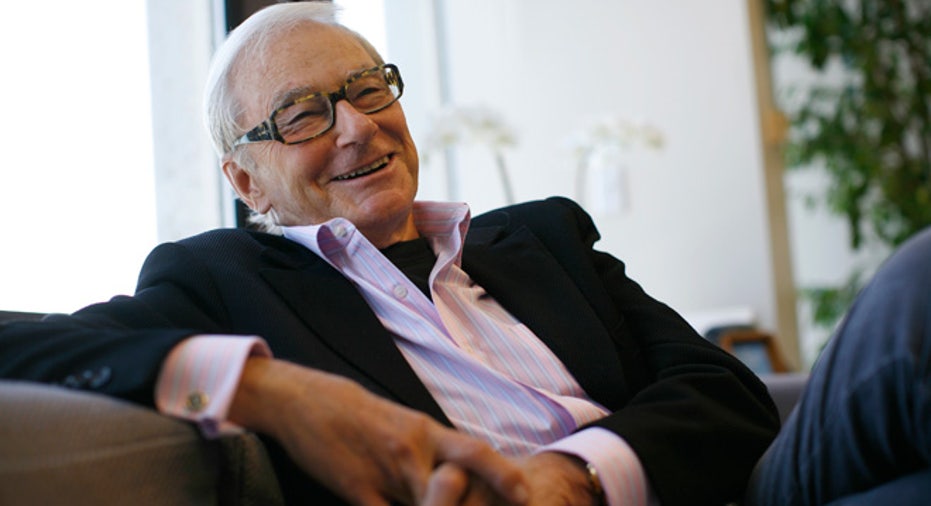Carly Fiorina’s Powerful New Friend

Tom Perkins, a former HP director and legendary co-founder of one of Silicon Valley’s top venture capital firms, Kleiner Perkins Caulfield Byers, is backing Carly Fiorina for President of the United States. I bet nobody saw that coming.
After all, Perkins didn’t even back Fiorina when she was chief executive of HP. In 2004, he voted along with the rest of the company’s board to fire her. Now he thinks she should be the whole nation’s CEO – or so he said in a full-page Fiorina Super PAC ad in last week’s New York Times.
What on the surface appears to be a turnabout of almost farcical proportions – Fiorina has written about the active role Perkins played in her ouster – may actually make a sort of twisted sense when you stop and think about it.
In the ad, Perkins admits that Fiorina’s termination was a mistake. He said it had nothing to do with her leadership and everything to do with a dysfunctional board. Indeed, the notion that HP’s board was and may still be rife with politicking and infighting is nothing new. That’s been the new HP Way since the board pushed out long-time CEO Lew Platt in 1999.
The board wanted a rock star to shake up the stodgy old company that was stuck in its ways and that’s exactly what it got. Fiorina reorganized the IT giant to a centralized management structure to streamline decision-making and laid off thousands. That ruffled a lot of feathers. She was polarizing. Folks either loved or hated her.
And the outcome of her controversial tenure may have been very different if not for one crucial decision that led to an even more crucial one. Fiorina had two chances to acquire the consulting practice of PricewaterhouseCoopers, but got cold feet when Wall Street reacted negatively to the deal. So she bought Compaq instead.
In effect, HP doubled down on computer hardware while IBM scooped up the consulting powerhouse and became the world’s top IT services company.
Looking back, that was the one fateful mistake Fiorina made and the truth is that anyone could have made it. Another truth is that the board was unanimously behind her every step of the way ... until it decided otherwise and fired her.
Replacing Fiorina with Mark Hurd was an inspired move that led to market share gains across all core businesses, five years of revenue growth and 22 quarters of increasing profits. But the board still found a way to screw that up. It threw Hurd under the bus over a baseless sexual harassment claim and some botched expense reports.
Looking back, Fiorina and Hurd both did exactly what the board wanted and it stabbed them both in the back. At that point, I doubt if anyone of merit was willing to take a chance on running HP, so the board reluctantly agreed on Leo Apotheker, who had recently been fired by SAP.
When it became apparent that Apotheker’s tenure as CEO would be mercifully brief, New York Times columnist James Stewart learned that most of the directors voted for Apotheker without ever having met him. He called HP a “laughingstock in Silicon Valley” and, in the same column, Perkins said HP’s board “has got to be the worst board in the history of business.”
While Perkins’ latest revelation further substantiates what many of us already knew about HP’s board, it also highlights the complexities of being a top executive in the high-tech industry and the challenges boards face in determining which CEO to hire and when it’s time to pull the trigger and move on.
Nowhere have those challenges been more apparent than at HP, where a chronically dysfunctional board has institutionalized the art of making startlingly dumb executive decisions, one after another. The great irony is that we might say the same thing about Washington.
Think about it. How many times have we heard the federal government described as dysfunctional or a laughingstock?
Why Fiorina would even consider trying her hand at turning around another screwed up organization is beyond me. If HP’s board was political and divisive, that’s nothing compared to Washington. But the fact that she even wants the job does say a great deal about Fiorina’s character and tenacity.
Perkins definitely brought up some interesting points in making his case for Fiorina as president. But the one thing he missed is that, if she could handle HP’s board and navigate one of the world’s largest companies through the demise of the dot-com bubble, she just might be made of the right stuff for Washington.
But let’s not overlook the obvious. Perkins may be right about HP’s board, but he’s been wrong about Fiorina before. Whether he’s right this time is anyone’s guess.



















